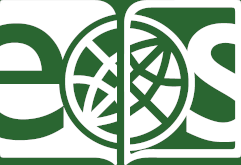Our agenda consisted essentially of two main problems with a connecting link between them. The two main problems are classical theory and quantum theory and the
connecting link is the theory of measurement which stands with its feet in both camps.
A call for more experiments at the present time is not likely to produce more experiments, but more experiments would be a wonderful thing. The only two types of experiments that have been suggested at this conference fall in two classes.
First, do all old experiments over again with more accuracy and increased care. And as Dicke has pointed out, if an experiment reported an accuracy great enough to check on the energy of interaction of weak interactions it might give a result different, in principle, from those done up to now. The other type of experiments which are going on, and ought to be going on, are those intended to shed light on cosmological problems at all levels. Actually, there exists a third type of experiment which is apparently not feasible, and is not going to be feasible for a long time. This type considers the detection of gravitational waves.
The classical theory must be concerned with a number of questions. First of all we have the mathematical questions. I think that Lichnerowicz and his group have cleaned up the question of the propagation of infinitesimal disturbances so that we now know what the light cone is, not only in the gravitational theory, but also in a non-symmetric theory. As far as the true Cauchy problem is concerned, how can we develop an algorithm which gives us self-consistent conditions on an initial hypersurface from which we can continue? This problem is not solved and is essentially another wording of the search for true observables. The third type of problem which one might classify as mathematical are the global theories which have been investigated by the French group.
Now to the problems that are more concerned with the special question, where things having physical or model significance are tried out. The most important of these questions which must be settled is, are there gravitational waves? At the present there is no general agreement. The other things to be mentioned are interesting but are of less crucial significance. People have studied model universes and stability questions and these are of major importance for cosmology. The geons, which are not to represent particles, may be of considerable use in studying model questions, i.e., how will such a thing behave? One would prefer, however, not to use the dynamical or statistical averagings. Among these classical problems are the unified field theories, and my own inclination is to suspend for a few years the search for bigger and better ones. Even if one believes in exhausting the classical problems first and also believes in unification, there is some question as to whether the unified theories are the correct starting point. At the end of the list of classical problems there is the real problem of the feasibility of separating the strictly classical questions from the quantum questions.
The work of Pirani which gives a simple classical observation of the components of the Riemann-Christoffel tensor should be accepted and made part of our equipment. It enables us to set up a conceptual experiment to measure a specified component of this tensor. This result should be a basic component in the design of new experiments. As far as quantum measurements are concerned, we should separate them into quantum theoretic measurements with and without gadgets. The man who does an experiment in gadgets believes that he can bring clocks and measuring rods into his physical space time without affecting it too much. I remind you of Salecker's experiment. It is dangerous, however, to use gadgets in an experiment without careful thought.
The first point in the discussion of quantum theory is the necessity for quantization. We have had two types of arguments for quantization here. The first is for the essential unity which quantization will bring. This is a very vague and general argument. And the second is related to measurement by gravity and has been discussed by both Feynman and Rosenfeld. As far as technology is concerned, we have talked very little about the non-Feynman methods of quantization. I agree with others that one need not wait until all the mathematical difficulties are cleared up in connection with the Feynman method. If this can be carried through it must also be possible to give a mathematically acceptable form to it. Very little has transpired on the problem of elementary particles. We have been given several word pictures and we must build a framework to hang the pictures on.
